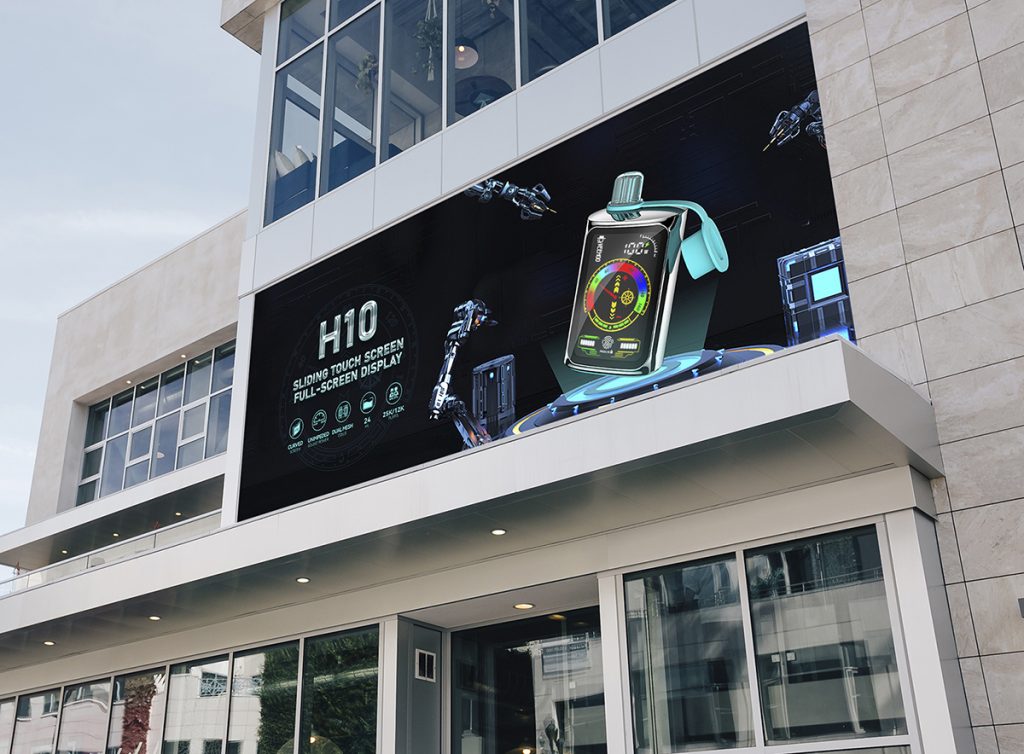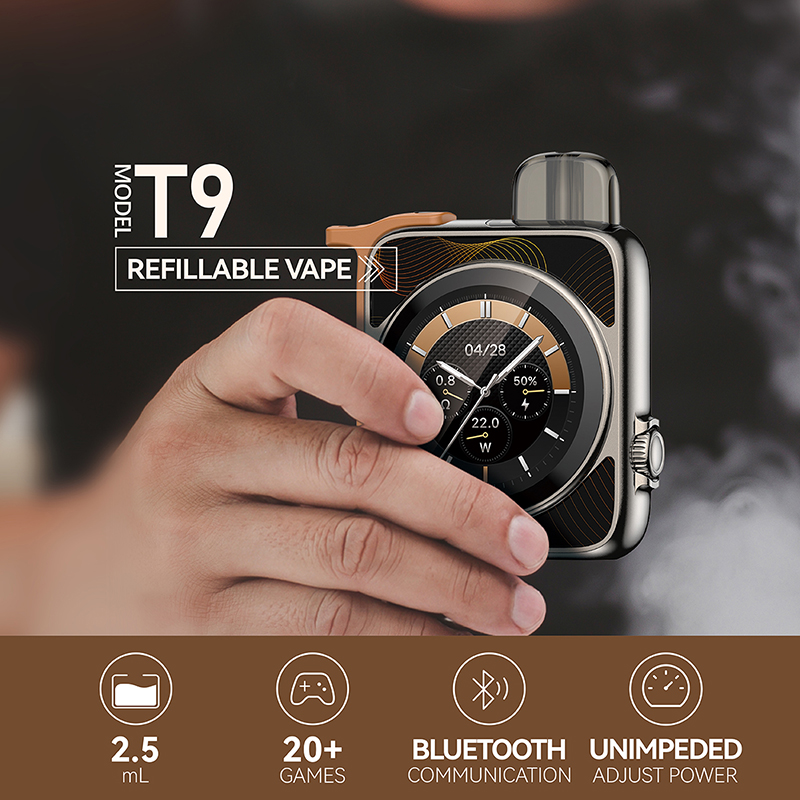In recent years, the rapid development of the e-cigarette market has brought a new look to tobacco substitutes, but at the same time, a new crisis has also emerged – “heady e-cigarettes” containing the anesthetic etomidate have quietly infiltrated public places and youth groups. It is particularly serious in Southeast Asia, and Singapore has also become a focus of attention. Recently, the Singapore Health Sciences Authority (HSA) and the Ministry of Health (MOH) released data showing that as of the first half of 2025, the number of e-cigarette products containing etomidate has increased dramatically compared with last year, which may trigger the country to tighten relevant regulations.
Etomidate is a clinical anesthetic that is often used for short-term anesthesia and needs to be used in a professional hospital environment. However, this substance has also been added to e-cigarette oil by criminals to form the so-called “Kpods”, “zombie vape” or “space oil”. After inhalation, it will quickly induce dizziness, muscle spasms, confusion, and even respiratory depression and epileptic seizures. In severe cases, organ damage and psychological dependence may occur.
The internal notice issued by the Singapore Ministry of Health and HSA on July 9, 2025 pointed out that in the first half of 2025, the number of e-cigarettes containing etomidate detected increased significantly – previously there were only more than ten cases throughout the year, but this year there have been 28 cases in the first half of the year, almost doubling.
Currently, Singapore has implemented a comprehensive ban on e-cigarettes since 2018. It is illegal to buy, own and use e-cigarettes. Once seized, a fine of up to 2,000 Singapore dollars will be imposed. In view of the new trend of narcotic abuse incidents, MOH and HSA are actively reviewing existing laws, including poison regulations and drug abuse regulations, to study whether it is necessary to further increase penalties and expand the scope of the ban to curb the spread of such “drug-flavored” e-cigarettes. Law enforcement agencies also linked immigration checkpoints, customs, police and the National Parks Board to focus on the target population and establish dynamic monitoring and defense for online platforms such as Telegram.

In addition, HSA and ICA jointly seized an industrial unit and vehicle management link in January 2025, seized about 8,700 e-cigarette devices and accessories, including Kpods for sale and suspected liquid containing etomidate, and arrested suspects.
Singapore has reported several incidents of abnormal behavior in public places due to smoking Kpods. A 13-year-old girl was in a trance and had an unstable gait after smoking an e-cigarette outside the court; suspected of etomidate poisoning, it was confirmed by testing that it was caused by Kpod inhalation. The relevant dealers were also quickly arrested. In addition, another 36-year-old man was photographed and investigated while smoking an e-cigarette in a subway car. After expressing regret, he took the initiative to hand over the device, indicating that related incidents have occurred in various public environments. What is shocking is that such incidents are not only frequent, but also occur mostly among young people, exposing the great risk of this new drug intervening in young people through sweet e-liquids and social channels.
Using etomidate in e-cigarettes can cause dizziness, muscle twitching and motor coordination disorders in a short period of time. As the dose increases, it may also cause respiratory depression, chemical lung damage, and even epilepsy, mental disorder and organ damage.
Even if it does not contain anesthetics, nicotine and common chemical additives in e-liquids alone may cause chronic respiratory diseases, alveolar sclerosis, inhalation of carcinogens and other injuries. Some experts point out that young people’s airways and brains are still developing, and such potential long-term consequences cannot be ignored.
What is more worrying is that repeated use may lead to rapid dependence, and if repeated use is interrupted, anxiety, insomnia, paroxysmal hand tremors and neurobehavioral abnormalities may occur, triggering serious physiological and psychological chain reactions.
The Singapore government not only relies on law enforcement, but also increases its educational publicity efforts. The Health Promotion Board has joined hands with the Ministry of Education to set up a long-term smoking cessation intervention program (such as “I Quit”), and has carried out anti-smoking courses and psychological counseling on campus to provide student assistance. In addition, HSA has launched online notices and public reporting channels to encourage the community to expose illegal vape links. At the family level, parents are reminded to pay attention to their children’s abnormal behavior, such as drastic mood swings or hidden e-cigarette devices, establish a healthy communication mechanism with their children, and seek professional intervention in a timely manner.

In the context of strict control of illegal products, there are still brands like VEEHOO e-cigarettes that adhere to legal compliance and international standards. They start from raw material supervision, intelligent traceability, anti-counterfeiting technology, etc., separate the focus from the illegal gray market, and refuse any etomidate or controlled substance adulteration.
VEEHOO uses a fully enclosed production workshop equipped with an intelligent barcode scanning system. Consumers can verify the source and check the factory records through the App to avoid purchasing counterfeit and inferior products. At the same time, its App integrates smoking cessation guidelines, age verification and health reminder functions, which helps reduce the risk of youth contact and wrong purchases.
At the industry level, VEEHOO actively participates in the formulation of national and industry standards, promotes the reasonable standardization of e-cigarettes, supports the construction of a mandatory registration system and traceability system, and promotes transparent development of the industry. This kind of corporate self-discipline not only enhances brand trust, but also provides the public with a legal and safe alternative.
At present, the Singapore authorities are planning to launch a new regulatory assessment process to consider whether it is necessary to strengthen the Poisons Act and the Abuse of Drugs Act, and to increase penalties and supervision for e-cigarette poisoning products as special drugs. At the same time, actively strengthen border chemical testing facilities and upgrade law enforcement capabilities.
At the regional level, it is proposed that Southeast Asian countries jointly prevent and control, share testing data and samples of key suspected varieties, form a cross-border combat alliance, and curb illegal processing and dissemination networks. The United Nations Office on Drugs and Crime (UNODC) also called for regional regulatory unification, law enforcement coordination and laboratory capacity improvement.
In the long run, it is necessary to establish an “integrated anti-drug network”, including government-led + industry self-discipline + education popularization + technology supervision. Law enforcement agencies use AI automatic screening platforms to monitor online transactions and use radio frequency identification tracking systems to locate suspicious products. Schools and communities should regularly organize interactive education, field inspections and psychological counseling to provide young people with anti-drug resistance.

E-cigarettes combine traditional tobacco and modern technology, but abuse scenarios also expose the risks of new drug-taking methods. Products such as Kpods containing etomidate frequently appear in Singapore, causing a heightened sense of crisis and prompting the government to make efforts from multiple angles, including regulations, law enforcement, and education.
Brands like VEEHOO e-cigarettes, which adopt legal and transparent, technological anti-counterfeiting, health tips, and industry participation, provide the society with a possibility of “formal substitution”. Through standardization and self-discipline, they convey to the public that legal channels are the only way to ensure safety, and lead the e-cigarette industry to develop in a healthy and controllable direction.
Ultimately, banning illegal additives and protecting young people from drug interference requires the coordination of policies, public opinion, industry, and citizens. From public place supervision to family communication, from regulatory revision to public opinion guidance, only by moving forward in parallel can we truly block the invasion of “top e-cigarettes” and create a healthy, safe, and selective growth environment for the next generation.
Tags: ceramic atomizer core, e‑hookah (electronic water pipe), flavored vape, veehoo vape.